Civil Engineering
For more information on Civil Engineering contact +91 9448120344 or mail us to hod.civil@agadiengcollege.com
“Cater quality technical education to prepare professionals in civil engineering with focal point on favorable teaching-learning and research environment to meet industrial and sustainable societal needs.”
M1: To instill outcome-based quality education, emphasizing on investigative learning with state of art infrastructure.
M2: To encourage industry-institute interactions through collaborations for devolving research and innovations in major areas, by providing a favorable environment.
M3: To inculcate moral, and ethical values among students for their personal and professional growth through value added activities.
M4: To emphasize on sustainable technologies that helps diverse sectors of the society.
- To provide students with opportunities in their core field.
- To upgrade teaching methods in accordance with changing standards.
- To provide state-of-the-art laboratory and classroom infrastructure.
- To help students tackle complex engineering problems in the field.
- To engage students in continuous learning through professional development.
- To establish an R&D center for the department.
- To train faculty to nurture future civil engineers.
- To build relationships between the department and industry.
- To encourage students to become entrepreneurs in the field.
- To conduct special programs that can instill in them adequate technical, communication, and leadership skills.
- To educate students on the balance between environment and infrastructure, and help them to make better engineering decisions in their careers.
Program Specific Outcomes
PSO 1: To exhibit technical competencies and to deal with practical aspects of civil engineering.
PSO 2: To apply modern construction techniques, conduct experiments, analyze, interpret data, and design the components.
PEO 1: Graduates will plan, evaluate and execute Civil Engineering projects by applying principles of civil engineering.
PEO 2: Graduates will reveal efficient interpersonal skills as an individual or in a team in a professional and social environment.
PEO 3: Graduates will succeed in higher studies, research and continue learning process to remain active professionals.
PEO 4: Graduates will lead in their selected occupations and personal accomplishments.
PO-1: Engineering Knowledge: Apply the knowledge of mathematics, science, engineering fundamentals, and an engineering specialization to the solution of complex engineering problems.
PO-2: Problem analysis: Identify, formulate, research literature, and analyze complex engineering problems reaching substantiated conclusions using the first principles of mathematics, natural sciences, and engineering sciences.
PO-3: Design/development of solutions: Design solutions for engineering problems related to computer engineering and design system components or processes that meet the specified needs with appropriate consideration for the public health and safety, and cultural, societal, and environmental considerations.
PO-4: Conduct investigations of complex problems: Use research-based knowledge and research methods including design of experiments, analysis and interpretation of data, and synthesis of the information to provide valid conclusions.
PO-5: Modern Tool Usage: Create, select, and apply appropriate techniques, resources, and modern engineering and IT tools including prediction and modeling to complex engineering activities with an understanding of the limitations.
PO-6: The Engineer and Society : Apply reasoning informed by the contextual knowledge to assess societal, health, safety, legal, and cultural issues and the consequent responsibilities relevant to the professional engineering practice.
PO-7: Environment and Sustainability: Understand the impact of the professional engineering solutions in societal and environmental contexts, and demonstrate the knowledge of need for sustainable development.
PO-8: Ethics: Apply ethical principles and commit to professional ethics and responsibilities and norms of the engineering practice.
PO-9: Individual and Team Work: Function effectively as an individual, and as a member or leader in diverse teams, and in multidisciplinary settings.
PO-10: Communication: Communicate effectively on complex engineering activities with the engineering community and with society at large. Some of them are, being able to comprehend and write effective reports and design documentation, make effective presentations, and give and receive clear instructions.
PO-11: Project Management and Finance: Demonstrate knowledge and understanding of the engineering and management principles and apply these to one’s own work, as a member and leader in a team, to manage projects and in multidisciplinary environments.
PO-12: Lifelong learning: Recognize the need for, and have the preparation and ability to engage in independent and lifelong learning in the broadest context of technological change.
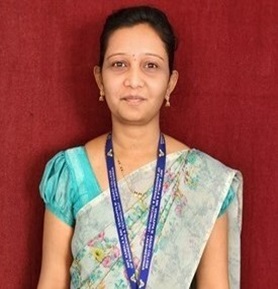
Dr. Swapna Channagoudar
I am very much delighted to welcome you to Smt. Kamala and Sri Venkappa M. Agadi College of Engineering and Technology, Lakshmeshwar, and the Department of Civil Engineering.
Civil engineers are the actual creators of modern world. Civil engineering deals with design and construction of the things that we need to function proficiently as a society. This includes roads, bridges, and many other essential parts of the community.
Department of Civil Engineering functions with a motivation of developing the professional and personal skills of students, which make possible for them to perform admirably as well-known engineers in society. We continue to organize and guide students for a variety of competitive exams and interviews so that they can perform better and make a career in the chosen fields. Real-world problems are blended into the curriculum, and these are taught by experts from industry in addition to guest lectures. Our focal point is to efficiently guide our students as civil engineers who can serve society proficiently, collaboratively, and ethically as planners, designers, constructors, and operators of the built environment.
Infrastructure / Facilities
Department has sufficient class rooms and most of them are equipped with multimedia projectors. Department also has its own Seminar Hall, 8 well equipped laboratories.
Laboratories
BUILDING MATERIAL TESTING LABORATORY
A well-equipped materials testing laboratory is available for developing design criteria and evaluating various types of building materials. The laboratory includes facilities for performing all kinds of tests on concrete and bituminous mixes. Impact Testing Machine, UTM, Torsion, Sieve Analysis, Phycnometer. RHN, BHN & VHN, Knife edge test on tiles, Density test on Aggregates, Hot Air oven for Moisture content determination, Wire Basket.
BASIC SURVEYING PRACTICE
This laboratory helps the students to gain basic knowledge on the various surveying and leveling instruments and their working. The available instruments includes Theodolite with Accessories, Dumpy level with Accessories, Total Station with Accessories, Plain Table with Accessories, Prismatic Compass with Accessories, Chain 30m, Tape, Arrows, Cross staff, Ranging rod, CilonGhat Tracer, Planimeter, Surveyor’s Compass with Accessories
FLUID MECHANICS LABORATORY
The Fluid Mechanics Laboratory is a facility for the study of fluid flow phenomena. All experimental setups are devised as bench system i.e. an individual setup works as a complete unit of fluid input in system as well as storage of fluid. Orifice Meter, Venturimeter, V-Notch, Rectangle Notch, Major Losses, Minor Losses, Kaplan Turbine, Francis Turbine, Impact of Jet, Centrifugal Pump.
ENGINEERING GEOLOGY LABORATORY
In this lab physical properties of minerals are identified. This lab contains Mineral Specimens, Rock Specimens, Plastic Specimen Trays, Streak Plates, Pocket Lens Pen Knife and Round Magnets.
COMPUTER AIDED ENGINEERING DRAWING LABORATORY
In this lab computer system is used to aid in the modification, optimization design. Computer with Accessories, Auto cad design software, Staad pro software & Excel.
GEO TECHNICAL ENGINEERING LABORATORY
In this lab Students are made to carry out all soil mechanics fundamental experiments according to standards, to understand the techniques, skills and modern engineering tools necessary for engineering practice. In this proposal, different laboratory tests can be developed to estimate the mechanical and engineering properties of soils. The major equipments is CBR, Direct Shear, Triaxial Apparatus, UCC Strength, Casagrande Apparatus, Sieve Analysis, Pycnometer, Density Bottle, Core Cutter apparatus, Hot Air Oven (thermostatically controlled), Sand Pouring Cylinder, Cone Penetrometer apparatus for liquid limit determination of soil, Shrinkage Limit Device, Rapid Moisture Meter, Soil Hydro Meter, Vane Shear Test Apparatus Motorized.
ENVIRONMENTAL ENGINEERING LABORATORY
The Laboratory has sophisticated equipments to analyze pollution parameters in water and waste water. The facilities include pH meter, Conductivity, Flame photometer, Hot air oven Spectro-photometer, Turbidity meter, Muffle furnace, Burettes, Conical Flasks.
CONCRETE & HIGHWAY MATERIAL TESTING LABORATORY
This lab is of utmost importance for a Civil Engineering student as it deals with the testing of various construction materials such as cement, aggregates, concrete (fresh & hardened), tiles and bricks. The various apparatus set up in the Concrete lab are Length Gauge & Thickness Gauge, Le-Chatelier Flask, Vee Bee Apparatus, Crushing Valve Apparatus, Bitumen Penetrometer, Ductility & Softening Point Apparatus, Flash & Fire Point Apparatus, Tar Viscometer, Abrasion Testing machine, Concrete Cube Vibrating Table, Mortar Vibrating Machine, Vicat Apparatus, Cement Autoclave, Blains Air Permeability, Compaction Factor Apparatus, Aggregate Impact Tester, Standard Cement for Air Permeability, CTM, Marshall Apparatus, Flexure (Beam) Testing.
Teaching Staff

Dr. Swapna Channagoudar
HOD
Name: Dr. Swapna Channagoudar
E-mail: hod.civil@agadiengcollege.com
Mobile No: +91 8867617379
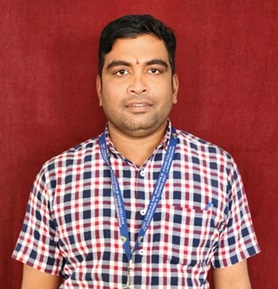
Mr. Arun Tandi
Name: Mr. Arun Tandi
E-mail: arun.civil@agadiengcollege.com
Mobile No: +91 9591655705
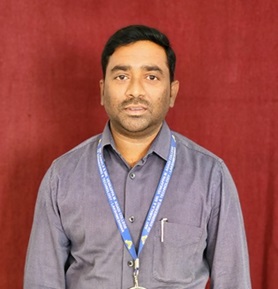
Mr. Malatesh Suranagi
Assistant Professor
Name: Mr. Malatesh Suranagi
E-mail: maltesh.civil@agadiengcollege.com
Mobile No: +91 9743676504
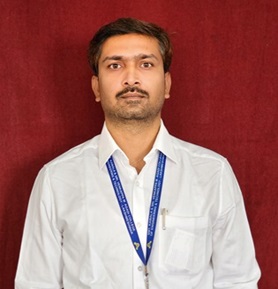
Dr. Shivarajkumar Goudar
Assistant Professor
Name: Dr. Shivarajkumar Goudar
E-mail: shivaraj.civil@agadiengcollege.com
Mobile No: +91 8123679168
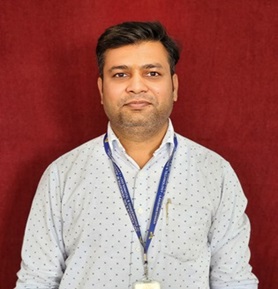
Mr. Tuljaramsa B Kalburgi
Assistant Professor
Name: Mr. Tuljaramsa B Kalburgi
E-mail: hod.civil@agadiengcollege.com
Mobile No: +91 9663922719
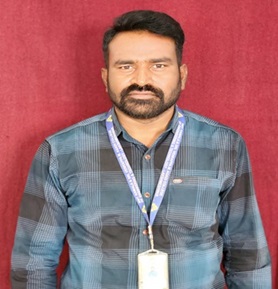
Mr. Rajendra Shetra
HOD
Name: Mr. Rajendra Shetra
E-mail: hod.civil@agadiengcollege.com
Mobile No: +91 8867617379
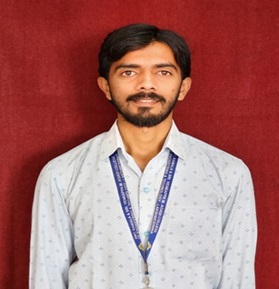
Mr. Laxman Patil
Assistant Professor
Name: Mr. Laxman Patil
E-mail: arun.civil@agadiengcollege.com
Mobile No: +91 9591655705
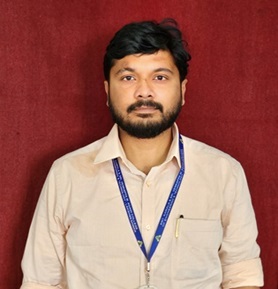
Mr. Guruputrayya Patil
Assistant Professor
Name: Mr. Guruputrayya Patil
E-mail: maltesh.civil@agadiengcollege.com
Mobile No: +91 9743676504
Technical Staff

Mr. Sandeep
Instructor

Mr. Sanjeev
Instructor
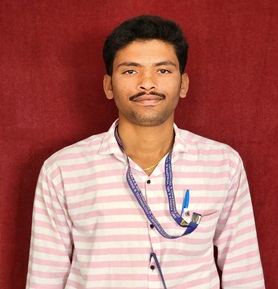
Mr. Kiran
Instructor
Faculty Achievements
1) A FDP proposal on “Recent Trends in Environmental Engineering” submitted from Mr. Arun Tandi and Mr. Malatesh Suranagi to VGST was selected and fund of Rupees Two Lakhs sanctioned.
2) Dr. Swapna Channagoudar awarded as “Young Researcher Award” from InSc for completing the PhD within 35 years.
Paper Published & Best Projects Spomsored by KSCST (Click here to view)
Research
The Department of Civil Engineering exposes the students to the new line of thinking and also supports the growth of individual thinking. The laboratory consists of well-equipped experimental apparatus. The Department encourages active involvement of faculty and students in collaborative programme, both at the national and international level. These programme range in terms of research and project work, development of academic programme and training of students, exchange of publications, data, teaching materials, ensuring optimum utilization of infrastructure facilities.
• MOU with Shantala Group Ltd. Hubli
• Industry Visit Details:
One day technical visit was organized for 4th Semester Civil Engineering Students to Renuka Sagar Dam which is at Navilutheertha of Saudatti Taluk, Belagavi district and 26 MLD water treatment plants which is at ChikkaNaragunda of Gadag district on 23-1-2024.
Department of Civil Engineering organized one day field visit for 6th semester students on 12/03/2020 to gain knowledge about water treatment plant, Lift Irrigation Pump House, and CC pavement at jalavadgi, Tq –MundargiDist-Gadag, on 12/03/2020. Mr.S.G.Goudar, Mr.LaxmanPatil, Mr,RajendraShetter and Ms.Premalatha are associated the event successfully.
Department of Civil Engineering organized one day industrial visit to Anjanadri Hills and Tunga Badhra Dam on 16.12.2022. Total 35 students from Final Year Civil Engineering attended the event. Mr. Rajendra Kumar Shetter, Mr. Laxman Patil, Mrs. Pratibha K, Ms. Poornima Naregal and Ms. Anusha Agadi coordinated the event.
Department of Civil Engineering organized one day field visit to Jalwadgi water treatment plant and Hamgi barrage for 4th semester students on 09.09.2023. Dr. Swapna, Prof, Rajendrakumar I S and Prof. Laxman coordinated the event.
